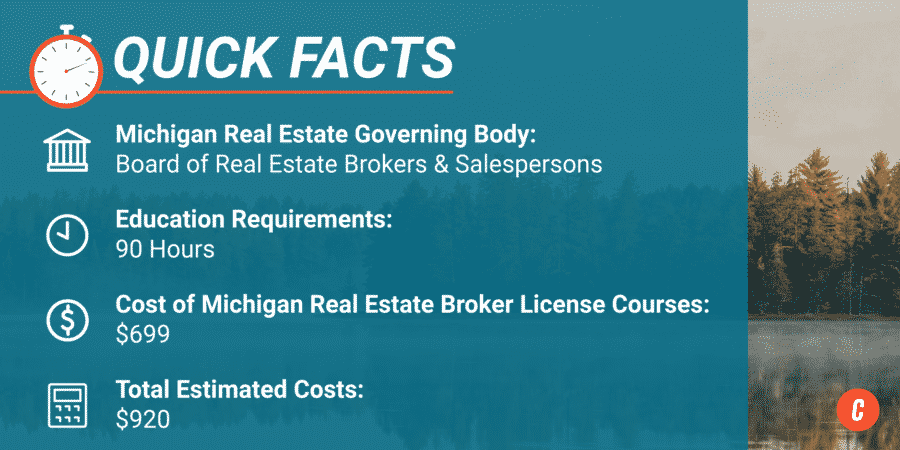
Referral fees are a great opportunity to make extra income in the real-estate industry. Before you refer clients, it is crucial to fully understand the fees and their value.
Referrals can be a huge part of any business in real estate. They can also help expand your client base. They can also help build relationships with other professionals. This can be a huge advantage in real estate.
What is a referral fee in real estate?
Referral fees are compensation offered by companies to employees, customers or other partners in return for generating sales or business transactions. It could be a onetime payment or recurring.
What is a Finder Fee for Real Estate?
An intermediary pays a finder fee to a buyer or seller in a real estate transaction. It could be a commission, gift, or a percentage.

What are some red flags to watch out for when it comes to finder fees?
First, any agent or real estate broker who requests a finder fee must be verified that they are licensed in good standing. A finder fee should not exceed 3-35% of the deal's total value.
Real estate referral fees can vary from one brokerage to the next. They could be between 25% and 50% of the commission earned by the agent who referred a client. Agents can pay higher fees in certain markets to increase their share.
The amount of the realty referral fee depends on property type, location, service level, and work expected from the receiving agents.
What are the most popular types of referral fees for real estate?
You may be able to receive a referral commission if you are a full service real estate agent. This is a percentage of any commission you earn on the referral. Or, you might be able to negotiate the fee with your clients.

Part-time agents may be allowed to charge a referral commission for each client they refer. This is especially important if you want to establish a strong presence in new markets.
What are the best referral rates for real estate agents?
If you are an agent who provides full-service high-end products and services, you might consider charging a referral fee at least 20%. You can also offer a lower percentage to clients who aren't already qualified and have a lot of work ahead of them.
It is also a smart idea to offer a referral charge if you are not able to meet the client’s specific needs. Referrals can be from family and friends. It's a great way of expanding your potential client base.
FAQ
What should you look out for when investing in real-estate?
The first thing to do is ensure you have enough money to invest in real estate. If you don't have any money saved up for this purpose, you need to borrow from a bank or other financial institution. It is also important to ensure that you do not get into debt. You may find yourself in defaulting on your loan.
You should also know how much you are allowed to spend each month on investment properties. This amount must include all expenses associated with owning the property such as mortgage payments, insurance, maintenance, and taxes.
Also, make sure that you have a safe area to invest in property. It would be a good idea to live somewhere else while looking for properties.
How can I tell if my house has value?
It could be that your home has been priced incorrectly if you ask for a low asking price. A home that is priced well below its market value may not attract enough buyers. You can use our free Home Value Report to learn more about the current market conditions.
Should I use an mortgage broker?
A mortgage broker is a good choice if you're looking for a low rate. Brokers have relationships with many lenders and can negotiate for your benefit. Some brokers earn a commission from the lender. Before signing up for any broker, it is important to verify the fees.
What amount of money can I get for my house?
The number of days your home has been on market and its condition can have an impact on how much it sells. Zillow.com says that the average selling cost for a US house is $203,000 This
What are the cons of a fixed-rate mortgage
Fixed-rate mortgages tend to have higher initial costs than adjustable rate mortgages. A steep loss could also occur if you sell your home before the term ends due to the difference in the sale price and outstanding balance.
How many times can my mortgage be refinanced?
It depends on whether you're refinancing with another lender, or using a broker to help you find a mortgage. You can typically refinance once every five year in either case.
Do I require flood insurance?
Flood Insurance protects against damage caused by flooding. Flood insurance helps protect your belongings and your mortgage payments. Learn more about flood coverage here.
Statistics
- It's possible to get approved for an FHA loan with a credit score as low as 580 and a down payment of 3.5% or a credit score as low as 500 and a 10% down payment.5 Specialty mortgage loans are loans that don't fit into the conventional or FHA loan categories. (investopedia.com)
- When it came to buying a home in 2015, experts predicted that mortgage rates would surpass five percent, yet interest rates remained below four percent. (fortunebuilders.com)
- This means that all of your housing-related expenses each month do not exceed 43% of your monthly income. (fortunebuilders.com)
- The FHA sets its desirable debt-to-income ratio at 43%. (fortunebuilders.com)
- Some experts hypothesize that rates will hit five percent by the second half of 2018, but there has been no official confirmation one way or the other. (fortunebuilders.com)
External Links
How To
How to Manage A Rental Property
You can rent out your home to make extra cash, but you need to be careful. We'll help you understand what to look for when renting out your home.
Here's how to rent your home.
-
What is the first thing I should do? Consider your finances before you decide whether to rent out your house. If you have outstanding debts like credit card bills or mortgage payment, you may find it difficult to pay someone else to stay in your home while that you're gone. Also, you should review your budget to see if there is enough money to pay your monthly expenses (rent and utilities, insurance, etc. This might be a waste of money.
-
How much is it to rent my home? Many factors go into calculating the amount you could charge for letting your home. These include factors such as location, size, condition, and season. Remember that prices can vary depending on where your live so you shouldn't expect to receive the same rate anywhere. Rightmove shows that the median market price for renting one-bedroom flats in London is approximately PS1,400 per months. This means that if you rent out your entire home, you'd earn around PS2,800 a year. While this isn't bad, if only you wanted to rent out a small portion of your house, you could make much more.
-
Is it worth it? Although there are always risks involved in doing something new, if you can make extra money, why not? Before you sign anything, though, make sure you understand exactly what you're getting yourself into. Not only will you be spending more time away than your family, but you will also have to maintain the property, pay for repairs and keep it clean. Make sure you've thought through these issues carefully before signing up!
-
What are the benefits? It's clear that renting out your home is expensive. But, you want to look at the potential benefits. Renting out your home can be used for many reasons. You could pay off your debts, save money for the future, take a vacation, or just enjoy a break from everyday life. No matter what your choice, renting is likely to be more rewarding than working every single day. You could make renting a part-time job if you plan ahead.
-
How do I find tenants? After you have decided to rent your property, you will need to properly advertise it. Start by listing online using websites like Zoopla and Rightmove. Once potential tenants reach out to you, schedule an interview. This will help to assess their suitability for your home and confirm that they are financially stable.
-
How can I make sure I'm covered? If you don't want to leave your home empty, make sure that you have insurance against fire, theft and damage. You'll need to insure your home, which you can do either through your landlord or directly with an insurer. Your landlord may require that you add them to your additional insured. This will cover any damage to your home while you are not there. If you are not registered with UK insurers or if your landlord lives abroad, however, this does not apply. You will need to register with an International Insurer in this instance.
-
Sometimes it can feel as though you don’t have the money to spend all day looking at tenants, especially if there are no other jobs. But it's crucial that you put your best foot forward when advertising your property. You should create a professional-looking website and post ads online, including in local newspapers and magazines. Also, you will need to complete an application form and provide references. Some people prefer to do everything themselves while others hire agents who will take care of all the details. Either way, you'll need to be prepared to answer questions during interviews.
-
What happens once I find my tenant If there is a lease, you will need to inform the tenant about any changes such as moving dates. If you don't have a lease, you can negotiate length of stay, deposit, or other details. It's important to remember that while you may get paid once the tenancy is complete, you still need to pay for things like utilities, so don't forget to factor this into your budget.
-
How do you collect the rent? When the time comes to collect the rent, you'll need to check whether your tenant has paid up. You'll need remind them about their obligations if they have not. You can subtract any outstanding rent payments before sending them a final check. If you're having difficulty getting hold of your tenant you can always call police. The police won't ordinarily evict unless there's been breach of contract. If necessary, they may issue a warrant.
-
How do I avoid problems? Although renting your home is a lucrative venture, it is also important to be safe. Install smoke alarms, carbon monoxide detectors, and security cameras. Check with your neighbors to make sure that you are allowed to leave your property open at night. Also ensure that you have sufficient insurance. Do not let strangers in your home, even though they may be moving in next to you.